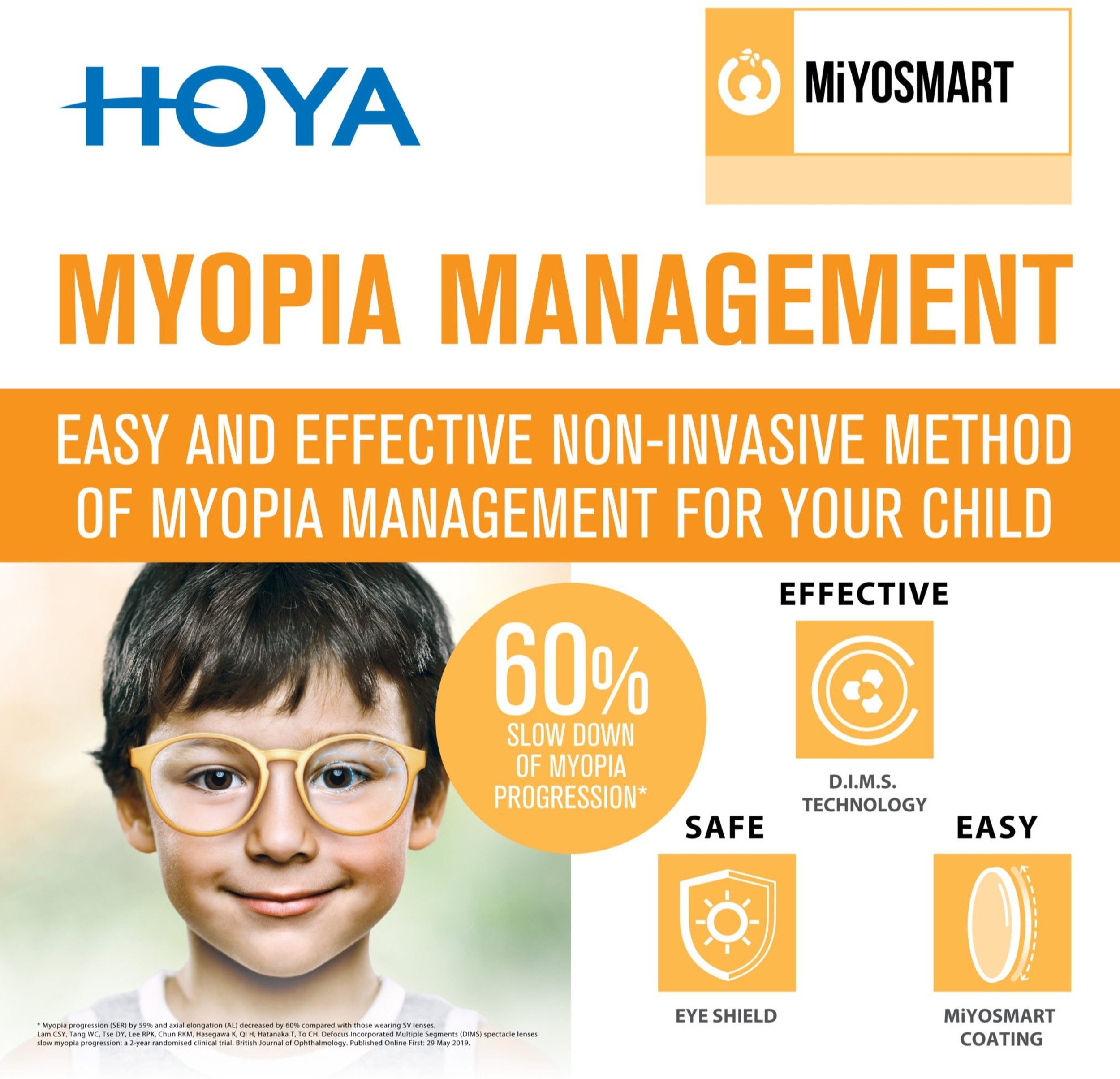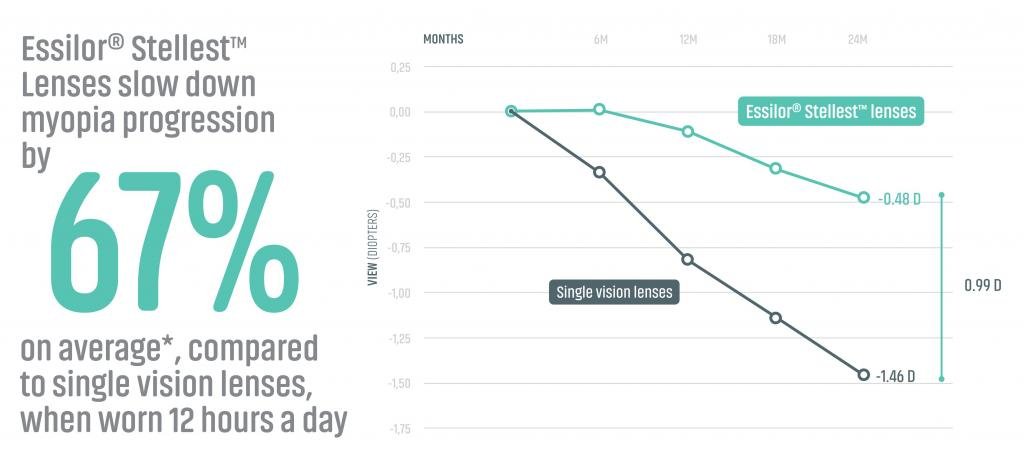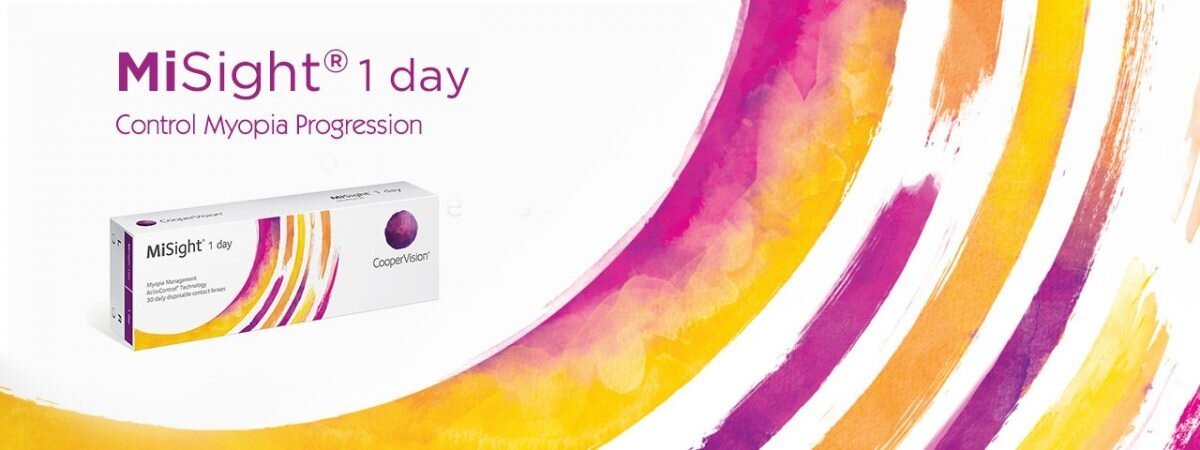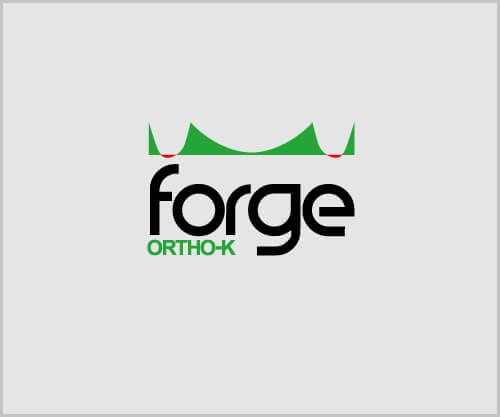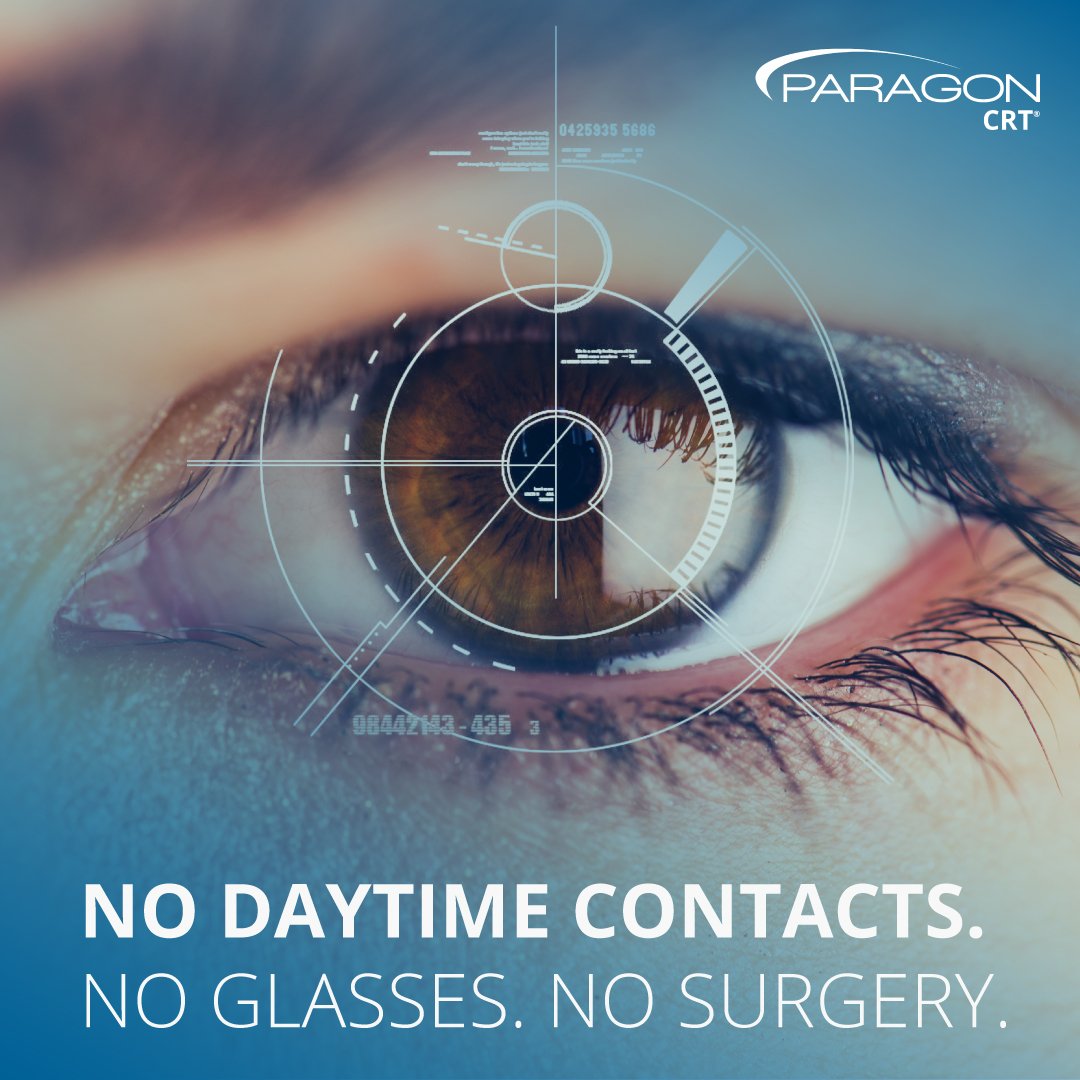At Advanced Optometry we understand myopia control.
Myopia is not only a vision disorder, it also increases the risk of eye disease and permanent vision loss later in life. Fortunately, options now exist to slow the progression of myopia.
Myopia, or nearsightedness, is an increasingly prevalent refractive error characterised by the inability to clearly focus on distant objects. It most commonly occurs when the axial length of the eyeball increases excessively, resulting in the focal point of light falling in front of the retina.
Aside from the visual effects of myopia, it is essential to recognise the risks associated with high myopia, a more severe form of nearsightedness characterised by excessive elongation of the eyeball. High myopia is associated with an increased likelihood of developing ocular complications including vision-threatening conditions.
One significant risk of high myopia is an increased susceptibility to retinal detachment. The elongation of the eyeball can induce stretching and thinning of the retina, rendering it more susceptible to tears or detachment. Retinal detachment can lead to substantial visual impairment or blindness if not promptly treated.
High myopia also increases the risk of the development of glaucoma. Glaucoma is a progressive optic neuropathy that can lead to irreversible vision loss, however currently there are many treatments for glaucoma and fortunately blindness from glaucoma is no longer common.
One of the most concerning risks of high myopia is the development of myopic maculopathy. This condition involves structural changes and pathological alterations in the macula, the central area of the retina responsible for detailed vision. Myopic maculopathy can result in irreversible vision loss and significant impairment of visual function and currently there are no effective treatments for myopic maculopathy so prevention is essential.
Myopia control is the practice of using optical or pharmacological therapies to slow the progression of myopia. There are currently 4 main types of myopia control therapies.
Orthokeratology contact lenses (OrthoK). OrthoK contact lenses are custom made rigid gas permeable contact lenses which are worn overnight. These lenses apply a gentle fluid suction which causes the cornea to temporarily flatten. People who wear Orthok contact lenses can see clearly the next day without the need for glasses or contact lenses, and are also proven to slow the rate of myopia progression (1).
Multifocal and Dual Focal Soft Contact lenses. These lenses are worn during the day and provide multiple images to the wearer’s retina which results in a slowing down of the progression of myopia (2).
Myopia Control Spectacles such as Essilor Stellest and Hoya MiyoSmart. These spectacles work similarly to dual focus soft contact lenses by altering the image being projected onto the peripheral retina and slowing the progression of myopia. These can be an excellent option for children who may not like or be suited to contact lens wear (3).
Atropine eye drops. Atropine is an anticholinergic eyedrop which in low doses can slow the progression of myopia (4).
(1) Si, Jun-Kang*; Tang, Kai*; Bi, Hong-Sheng*; Guo, Da-Dong†; Guo, Jun-Guo*; Wang, Xing-Rong*. Orthokeratology for Myopia Control: A Meta-analysis. Optometry and Vision Science 92(3):p 252-257, March 2015.
(2) Walline JJ, Walker MK, Mutti DO, et al. Effect of High Add Power, Medium Add Power, or Single-Vision Contact Lenses on Myopia Progression in Children: The BLINK Randomized Clinical Trial. JAMA. 2020;324(6):571–580.
(3) Myopia Control Efficacy of Spectacle Lenses with Aspherical Lenslets: Results of a 3-year Follow-up Study. Xue Li (1,2,3), Yingying Huang (1,2,3), Ziang Yin (1,2), Chenyao Liu (1,2), Siqi Zhang (1,2), Adeline Yang (3,4), Björn Drobe (3,4), Hao Chen (1,2), Jinhua Bao (1,2,3)
(4) Yam JC, Li FF, Zhang X, Tang SM, Yip BHK, Kam KW, Ko ST, Young AL, Tham CC, Chen LJ, Pang CP. Two-Year Clinical Trial of the Low-Concentration Atropine for Myopia Progression (LAMP) Study: Phase 2 Report. Ophthalmology. 2020 Jul;127(7):910-919.
